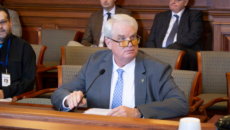The Americans for Prosperity-Missouri and the AARP argue that allowing nurse practitioners to treat patients without physician supervision would help ease a health care shortage in Missouri, particularly in underserved areas. However, the editorial failed to mention several important facts. First, like most of the states in the Union, Missouri is not only short of physicians, but also of nurses. By encouraging more nurses to move into a “provider” role, nurse practitioner independence would have a negative impact on the supply of bedside nurses.
Secondly, while advocates claim that allowing nurses to practice independently will fill the need for primary care in underserved areas, studies have consistently shown that states with independent practice have not this promised increase in rural health shortage areas. Instead, independent nurse practitioners end up working in the exact same places as physicians. Additionally, less nurse practitioners are entering into primary care. More and more, nurse practitioners are forgoing primary care to work in specialty offices. In fact, in areas with independent practice, it is not uncommon to see nurse practitioners opening cosmetic practices offering botox and fillers rather than bread-and-butter primary care medicine.
The opinion piece argues that nurse practitioners are “already trained and qualified,” and that research has shown that nurse practitioner care is equivalent to that of physicians. Unfortunately, the authors neglect to mention that every single study that has ever claimed to show nurse practitioner safety and efficacy has been performed in a setting in which nurses were supervised by a physician. There are absolutely no studies that show nurse practitioner safety and efficacy when practicing independently.
Moreover, most of the studies that purport to show nurse practitioner safety have been of low quality, often following healthy patients over very short time frames, with one often-cited study having a time frame of only two weeks. These studies are not appropriately designed to show whether nurse practitioners, especially practicing independently, can safely and effectively care for patients over the course of a lifetime in a primary care role.
Additional concerns have been raised regarding the quality of training and education of newer nurse practitioners. While physicians are required to have 15,000 hours of training and experience before being permitted to treat patients independently, nurse practitioners are required to complete just 500 hours. Unlike medical school, many nurse practitioner programs are 100% online, and clinical experience lacks the standardization required of physician trainees. Many nurse practitioner programs no longer require nursing experience, allowing students with any bachelor’s degree to become a nurse practitioner.
There is no doubt that Missouri needs more physicians and nurses. Legislators would be better off focusing their efforts on ways to increase the supply of both critically important professions, rather than trying to pass off one as the other.
For example, Missouri has led the way in enacting legislation to create a new profession called Assistant Physicians which become effective in late 2014. Assistant physicians are physicians who have completed medical school but not a residency program. They work under the supervision of a fully licensed physician. Since 2015, approximately 300 Assistant Physicians have obtained a license.

Rebekah Bernard MD, Carmen Kavali MD, Purvi Parikh MD, Ainel Sewell MD, Amy Townsend MD, and Roy Stoller DO are Board Members of Physicians for Patient Protection. Physicians for Patient Protection is a grassroots organization of practicing and retired physicians, residents, and medical students. Our mission is to ensure physician-led care for all patients and to advocate for truth and transparency regarding healthcare practitioners. We advance our mission by educating our colleagues, by influencing policy and legislation, and by educating our patients and the public.








